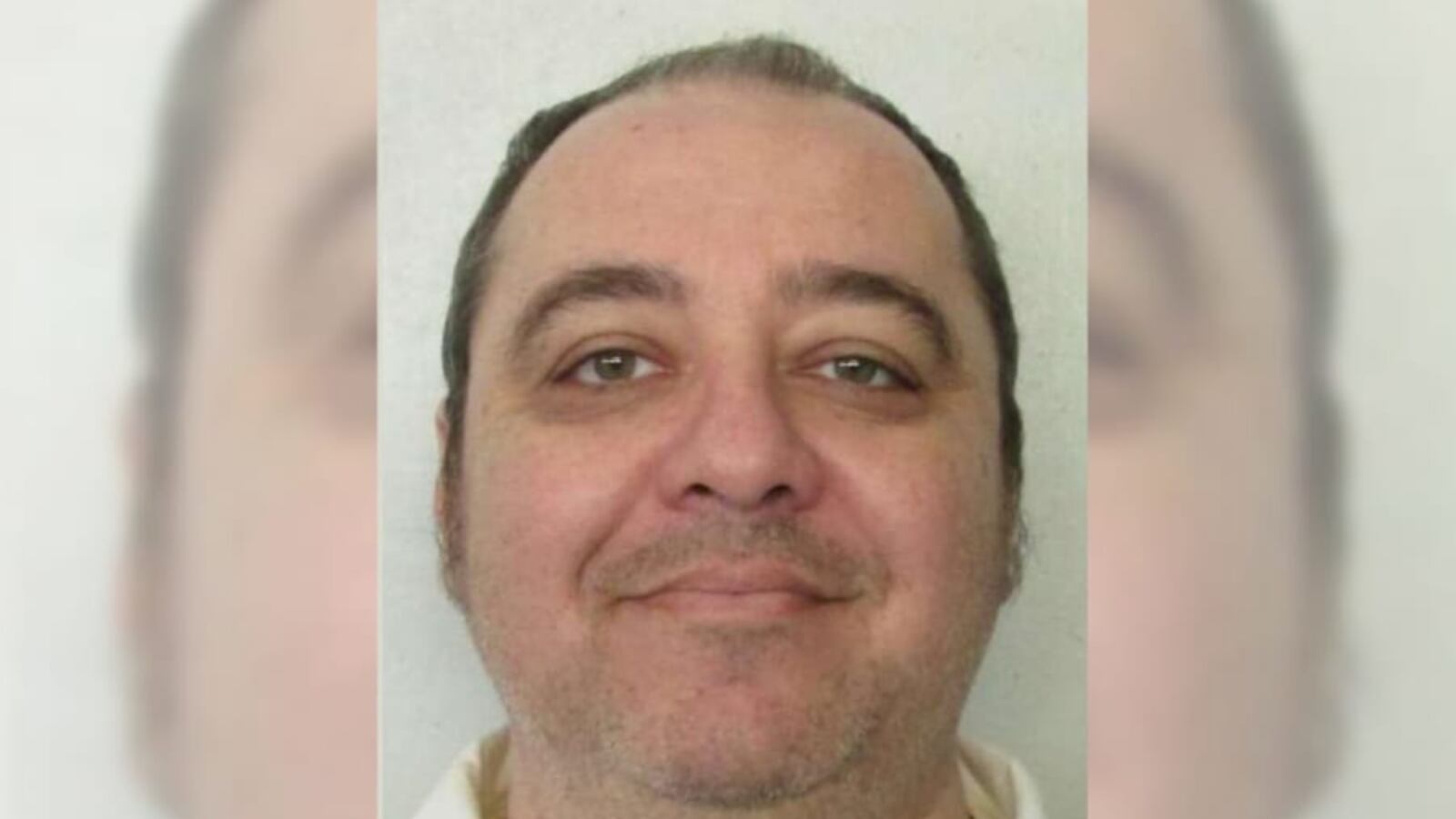Alabama on Thursday became the first state to ever execute a death row prisoner using nitrogen gas, potentially opening up a highly controversial method to wider use in prison executions even as experts and advocates have questioned whether it could lead to excessive pain and suffering.
Kenneth Smith, who survived an attempt by the state to execute him by lethal injection in 2022, was put to death Thursday evening in Atmore, the rural home to Alabama’s execution chamber near the Florida state line, Governor Kay Ivey’s office confirmed.
Smith, 58, was executed at 8:25 p.m. local time, according to a press release issued by the state Department of Corrections.
The execution took roughly 22 minutes, the Associated Press reported. He appeared to stay conscious for “several minutes” after the gas began to flow, shaking and writhing and sometimes pulling against the restraints of his gurney for more than two minutes, the wire service added.
After several minutes of heavy breathing, Smith’s breath appeared to still.
In a final statement, Smith said, “Tonight Alabama causes humanity to take a step backwards… I’m leaving with love, peace and light.” He also made an “I love you” sign to family members witnessing the execution, according to the AP.
“Thank you for supporting me. Love, love all of you,” he said.
Alabama officials, while keeping much of the execution protocol under wraps, previously explained that death by “nitrogen hypoxia” would involve placing a respirator mask over Smith’s face and forcing him to breathe pure nitrogen, causing fatal oxygen deprivation.
Officials said the method would knock Smith out in a matter of seconds, and leave him dead in minutes.
The execution, originally scheduled for 6 p.m. local time, was delayed as the U.S. Supreme Court weighed a last-minute appeal by Smith’s lawyers to stay his execution. The high court denied the appeal shortly before 8 p.m., clearing the way for Smith to be brought to the death chamber. The court’s three liberal justices—Elena Kagan, Ketanji Brown Jackson, and Sonia Sotomayor—publicly dissented.
A day prior, the high court had declined to take up or intervene in Smith’s case. In a separate ruling late Wednesday, a federal appeals court declined to halt the execution.
Smith’s final meal was served at breakfast. He asked for and received a T-bone steak that was served with hash browns and eggs, all from Waffle House and lathered in steak sauce, The New York Times reported.
A reverend in close contact with Smith in the months leading up to his death said the inmate had been repeatedly throwing up in a trash can, fearing a complication could arise.
“Kenny is terrified,” said Rev. Jeff Hood, according to the Times. “He’s terrified that this thing is going to completely torture him.”
In a joint statement on Thursday afternoon, Smith and Hood said, “The eyes of the world are on this impending moral apocalypse. Our prayer is that people will not turn their heads. We simply cannot normalize the suffocation of each other.”
Some experts voiced concerns in recent days that the use of nitrogen hypoxia could violate Smith’s constitutional rights under the eighth amendment. Alabama authorities have countered that the method is “perhaps the most humane method of execution ever devised.”
The fatal punishment came more than three decades after Smith was convicted of a bizarre murder-for-hire plot, in which he and two other men were hired by a pastor to fatally stab his wife, Elizabeth Sennett, in 1988. Two of Sennett’s sons had advocated for Smith’s execution, saying it was long overdue.
Alabama, one of 19 states where the death penalty remains active, has struggled to effectively carry out executions in recent years. In 2022 alone, the state had three executions that were deemed as “botches,” meaning they deviated from the stated protocol. Other states have struggled to obtain the drugs needed for lethal injections in the face of pressure from medical groups and activists who opposed the death penalty.
Among those subjected to a botched execution was Smith, who was temporarily spared after guards failed to set an intravenous line to deliver a lethal injection into his veins before his death warrant expired on Nov. 17, 2022.
While the use of nitrogen for an execution was unprecedented stateside, Alabama lawyers who advocated for the method pointed to the use of nitrogen for assisted suicides in Europe as proof that death by nitrogen is equally effective and humane.
Smith’s lawyers never disputed that nitrogen could be an effective execution method, but they argued to an appeals court Wednesday that Alabama wasn’t properly prepared to carry out such an execution. They said the use of a mask—rather than a bag or other enclosure—could allow enough oxygen to seep through that’d possibly prolong the process of Smith losing consciousness, causing him to suffer before eventually succumbing.
The question of a leak also prompted some to voice concern for the health of others in the room, including Hood, who was made to sign a waiver acknowledging that he could be brought into contact with the colorless and odorless gas during the execution, according to NPR.
Despite those concerns, the federal appeals court ruled 2-1 Wednesday in favor of the execution remaining on schedule using nitrogen.
Smith’s lawyers then brought that same argument to the Supreme Court on Thursday, writing in a petition that Alabama’s use of a “one-size-fits-all mask” could lead to a botched execution with Smith in a “persistent vegetative state” or cause him to choke on his own vomit.
Attorneys for Smith suggested that a firing squad would be a “feasible and available alternative”to replace nitrogen hypoxia. Despite their pleas, the Supreme Court declined to act on the petition.
The White House denied to comment on the execution to multiple media outlets on Thursday, with a spokesperson telling the Times simply, “This is a state-level case and I won’t speak to the details of this particular case.”
Smith’s death by nitrogen has likely opened the door for other states to use the method in place of lethal injections. Even prior to Thursday, both Mississippi and Oklahoma had authorized their prisons to carry out executions by nitrogen hypoxia, but ordered them to do so only if they could not use lethal injection.








